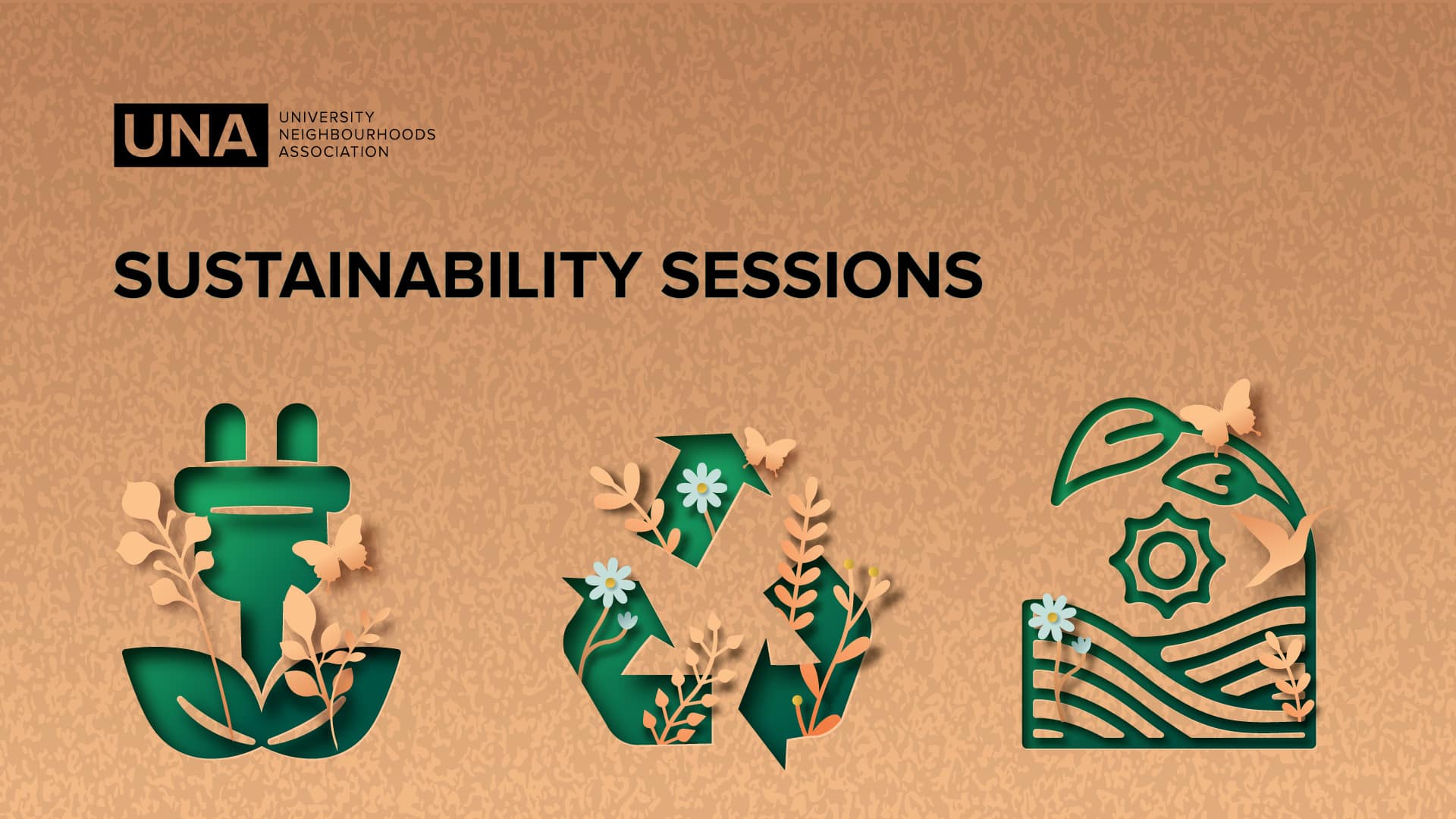Sustainability Session 4 – Climate-Friendly Food Systems
By UNA
 CANCEL SEARCH
CANCEL SEARCH

Food systems make up over 25% of global greenhouse gas emissions, because of land use, food production, supply chains, and post-retail emissions. At UBC, the food system accounts of over 29,000 tons of CO2 – over 20% of UBC’s overall emissions. Laure Dupuy, Applied Research Coordinator for Climate Action and Food Systems at UBC’s SEEDS Program, coordinates students who are focused on creating climate-friendly food systems on campus. The SEEDS Program is an applied learning experience that provides students with the opportunity to collaborate and advance sustainability, using UBC Campus as a living laboratory.
In 2019 UBC joined other organizations to declare a climate emergency and made a commitment to accelerate climate action through the Climate Action Plan 2030. CAP 2030 recognizes that just, resilient, and sustainable food systems are critical to climate change adaptation.
So what is a climate-friendly food system and how can we achieve it? The Climate-Friendly Food Systems Action Team developed a definition in 2021: UBC aims to operate within a climate-friendly, just and accessible food system, which means being committed to operating within planetary boundaries by reducing our GHG food system footprint and enhancing food system resiliency from production to end disposal and recovery, while producing positive outcomes for people, animals and planet. Some actions include a diet rich in plant-based food, reducing food waste, and reducing greenhouse gas emissions along the supply chain.
Laure shared information on several SEEDS projects that are working towards a more sustainable food system at UBC, including Climate-Friendly Food Labels at Food Services, research into a Climate-Friendly Food Procurement Guide, and a resource for UBC and UNA residents to support climate-friendly food choices at home and at work.
Big impact tips for UNA residents include taking steps to reduce food waste, shifting to more plant-based foods, and reducing food packaging waste. We can also support regenerative and resilient food systems by buying local, following the seasons, and buying products that support food and food justice.
The UNA’s monthly Sustainability Sessions are an opportunity for residents to spend their lunch hour learning about different sustainability topics and initiatives happening in the UNA and UBC communities. If you have a topic that you’d like to learn about email Robyn Chan, UNA Sustainability Specialist, at robyn.chan@myuna.ca.